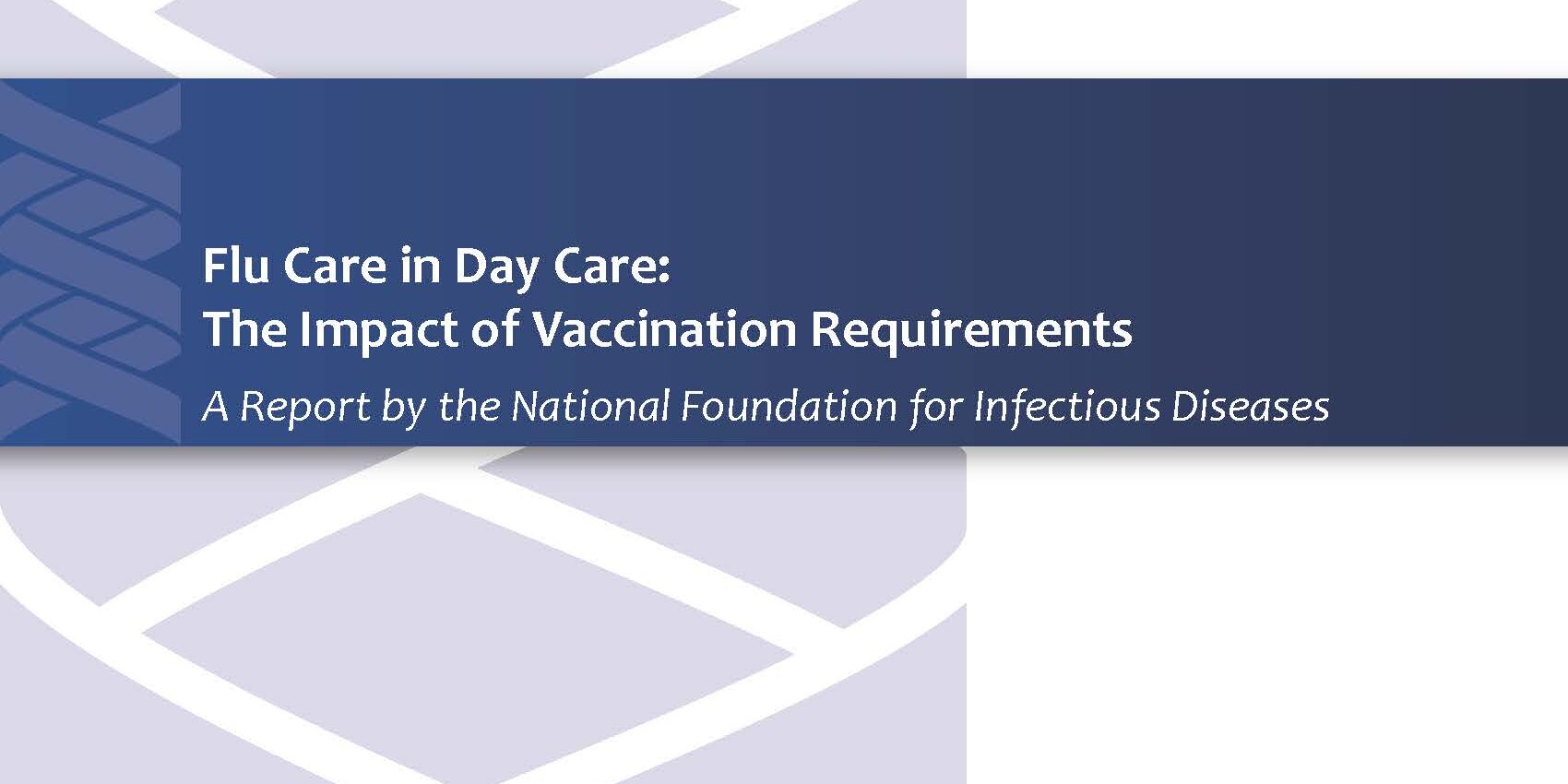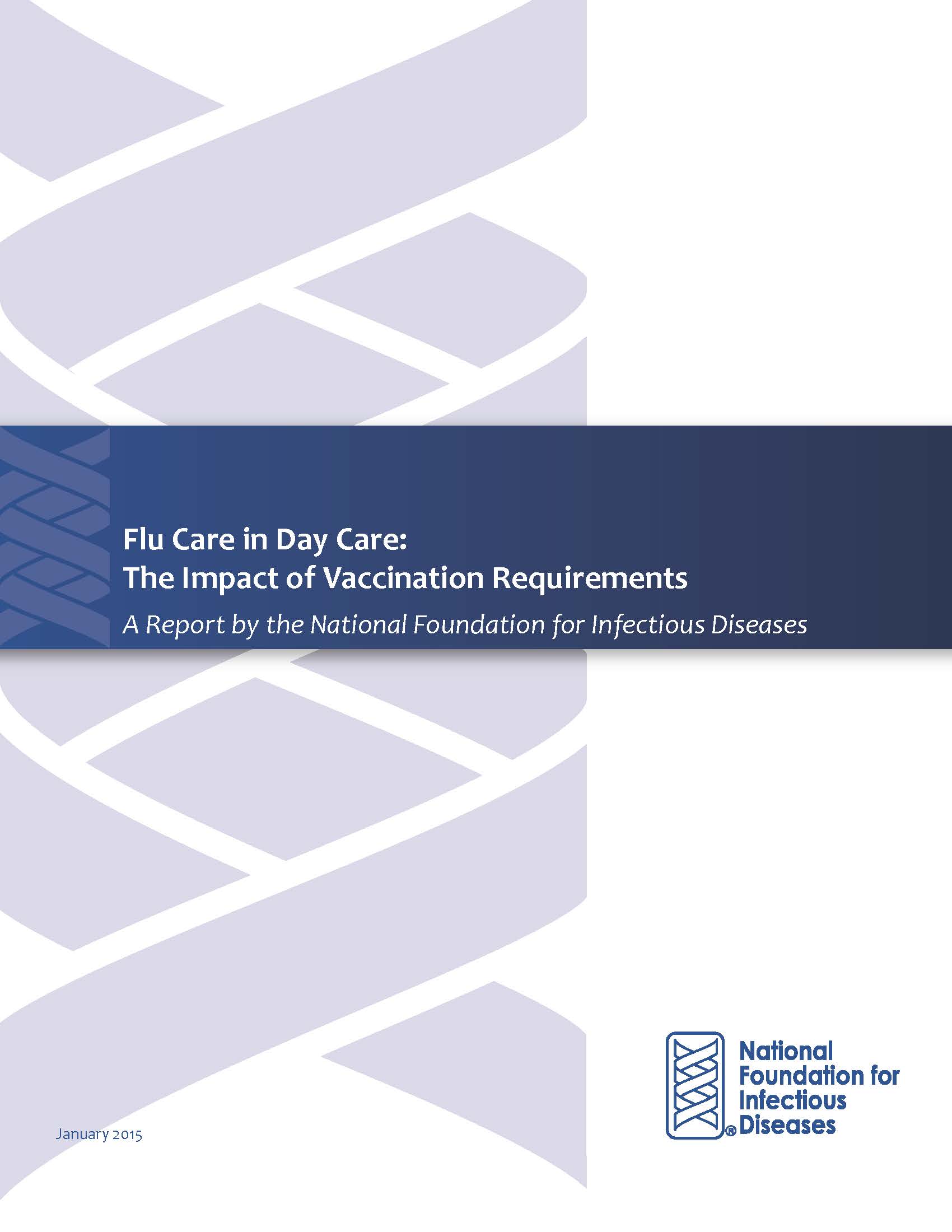
The growing focus on influenza (flu) vaccination requirements for children enrolled in preschools and day care centers led the National Foundation for Infectious Diseases (NFID) to create a report that examines the impact of these requirements in improving and maintaining higher vaccination rates among young children.
Each year in the US, approximately 20,000 children under 5 years of age are hospitalized from flu-related complications. According to the Centers for Disease Control and Prevention (CDC) there were reports of more than 400 flu-related deaths in children over the last 4 years. As of January 24, 2015, a total of 61 pediatric flu-associated deaths have been reported so far this season. Although flu vaccination rates have been increasing, they remain among the lowest of any routinely recommended childhood vaccine. Nationally, 30% of children 6 months to 4 years of age are not getting vaccinated, which translates to millions of unvaccinated children across the country.
 New Jersey, Connecticut, and New York City have implemented flu vaccination requirements for preschools and day care centers in the past 6 years. NFID and the Childhood Influenza Immunization Coalition (CIIC), in collaboration with the Association of Immunization Managers (AIM), convened a panel to discuss the challenges and strategies these jurisdictions employed to establish and implement the mandates. The panel discussion informed the report, “Flu Care in Day Care: The Impact of Vaccination Requirements,” which distills experiences into lessons learned and best practices.
New Jersey, Connecticut, and New York City have implemented flu vaccination requirements for preschools and day care centers in the past 6 years. NFID and the Childhood Influenza Immunization Coalition (CIIC), in collaboration with the Association of Immunization Managers (AIM), convened a panel to discuss the challenges and strategies these jurisdictions employed to establish and implement the mandates. The panel discussion informed the report, “Flu Care in Day Care: The Impact of Vaccination Requirements,” which distills experiences into lessons learned and best practices.
“We’re encouraged by the improvement in pediatric flu vaccination rates overall, but there is more work to do to ensure children are immunized every year. One area of focus has been implementing vaccination requirements in the day care and preschool setting,” said Carol J. Baker, MD, past-president of NFID, CIIC chair, and professor of Pediatrics, Molecular Virology & Microbiology at Baylor College of Medicine.
Dr. Baker also noted that in addition to preventing influenza and its complications in these young children, widespread vaccination within day care and preschool settings can also help reduce transmission of the flu virus to others in the household and to the community at large since children are significant spreaders of influenza. Additionally, misconceptions about the severity of flu and the need for annual vaccination may be two reasons why flu vaccination rates lag behind other vaccines.
“We need pediatricians to step up their efforts. They play a critical role in helping parents to understand why their children need flu vaccine every year. Vaccine requirements can also help ensure more children are vaccinated annually.”
While it is difficult to assess the direct impact of preschool and day care flu vaccine requirements, there is early evidence that suggests they are effective. A Yale School of Public Health study found an increase in flu vaccination coverage and a decrease in flu-related hospitalizations in young Connecticut children since the regulations took effect.
Key Elements for Implementing Flu Vaccination Requirements
The report summarizes key learnings and shares strategies used to implement these requirements including the importance of education for parents, school providers, and healthcare professionals.
- Early and frequent communication is key. Conduct outreach to parents, day care and preschool providers, community leaders, and healthcare professionals well before requirements are implemented to ensure ample time to plan and prepare.
- Education is critical. Increase efforts to address any educational barriers or misconceptions so parents understand the risks of flu and the benefits of annual vaccination.
- Compliance can be a challenge. Evaluate and consider expanded infrastructure to ensure timely flu vaccine delivery. In addition to doctors’ offices, pharmacies and public health departments, hospital- or school-based clinics can serve as viable options for administration of flu vaccine to children.
Additional Resources:
- Flu Care in Day Care: The Impact of Vaccination Requirements (Report)
- Flu Care in Day Care: Archived webinar featuring presentations from jurisdictions with mandatory influenza vaccination day care mandates in place, highlighting barriers and solutions
- PreventChildhoodInfluenza.org: Childhood Influenza Immunization Coalition (CIIC) website focused on protecting infants, children, and adolescents from influenza
- Educational Resources for Schools & Day Care: Online collection of resources for teachers, day care providers, students, and parents/guardians
To join the conversation, follow us on Twitter (@nfidvaccines), like us on Facebook, and join the NFID Linkedin Group.
Related Posts

News Round-Up: Infectious Disease Threats
According to NFID website poll, there are several worrisome infectious disease threats. Read recent news on topics of greatest concern, including avian influenza (bird flu), measles, and respiratory syncytial virus (RSV) …

Vaccines and Heart Health: A Vital Connection
Heart disease can increase the risk of serious or fatal complications from respiratory diseases including COVID-19, flu, and RSV

Harnessing the Power of Local Data
NFID dashboard aims to empower stakeholders with hyperlocal data to increase US adult respiratory vaccine uptake
